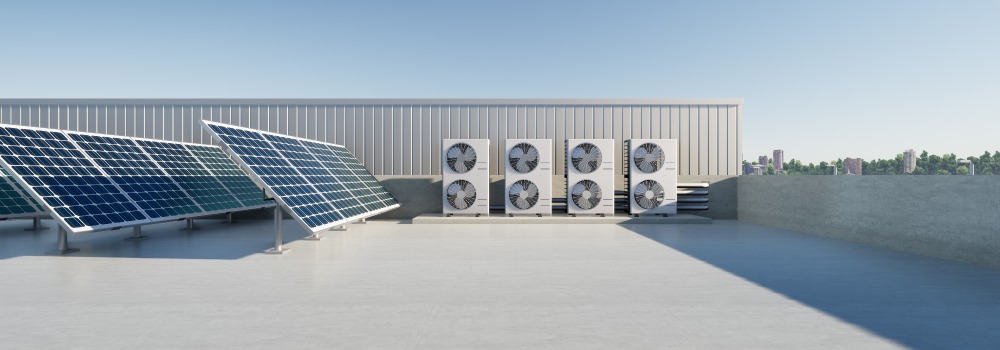
There are many types of technology available to save energy on HVAC (heating, ventilation, and air conditioning) systems in commercial buildings. Some of the most common technologies include:
Building Automation Systems (BAS): These systems allow for the centralized control and monitoring of HVAC systems, lighting, and other building systems. They can automatically adjust the temperature, ventilation, and other settings in response to occupancy, temperature, and other variables. This can help to optimize energy efficiency and reduce energy costs.
Variable frequency drives (VFDs): These devices are installed on HVAC equipment such as fans and pumps, and they can adjust the speed of the equipment to match the actual demand. This can lead to significant energy savings, as the equipment doesn't have to operate at full capacity all the time.
Energy Recovery Ventilation (ERV) systems: These systems recover energy from exhausted air and transfer it to incoming fresh air. This can significantly reduce the energy needed to heat or cool the incoming air.
Direct Digital Control (DDC) systems: DDC systems monitor and control HVAC systems using digital communications, which allows for more accurate and precise control of the equipment and reduces energy waste.
Smart thermostats: These devices allow for remote control and monitoring of HVAC systems, and use advanced algorithms to adjust the temperature based on occupancy, time of day, and other variables. This can significantly reduce energy costs associated with heating and cooling.
Geothermal heat pumps: These systems use the earth as a heat source in the winter and a heat sink in the summer. They can be more energy-efficient than traditional HVAC systems and may be a good choice for buildings in certain regions.
VRF geothermal systems are a type of heating and cooling system that use a heat pump and an underground loop of pipes filled with refrigerant to transfer heat to or from the earth. The VRF technology uses a central outdoor unit that connects to multiple indoor units, allowing for individual temperature control in different zones or rooms. VRF geothermal is highly efficient.
It's worth noting that each commercial building is unique and the best technology to save energy on HVAC will depend on the specific needs of the building, such as size, location, and usage. A detailed energy audit is recommended to identify which technology would be most appropriate and cost-effective for a specific building.
EBEB Solutions, a team of certified professionals including Energy Managers, Demand Side Managers, and Sustainable Development Professionals, offers a comprehensive range of energy audit services, including ASHRAE Level I, II, and III assessments, energy management solutions, renewable energy services, project financing options, tax and rebate assistance, and design-build services.